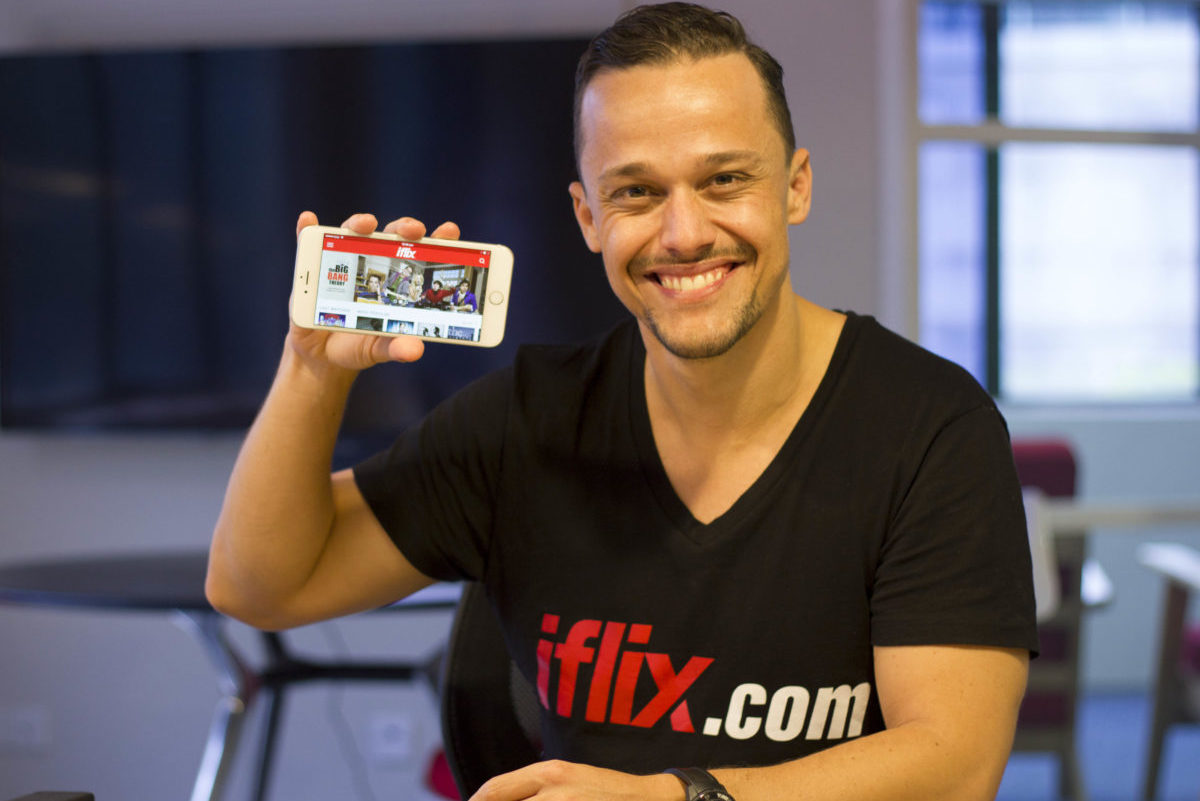Malaysian-based iflix bills itself as the world’s leading subscription video on demand service for emerging markets. The company’s co-founder and CEO Mark Britt told Mediaweek, “From an infrastructure perspective developing countries are tough, but we love them.
“There is a set of tech challenges that exist almost universally in these markets which we are committed to resolving, including inconsistent access to a consistent, reliable internet network and infrastructure development, and more.”
Since iflix commenced business, launching in Malaysia and the Philippines in late May 2015, an understanding of the needs of emerging markets gave it an edge.
“We work continually to providing consumers with solutions, such as partnering with telco providers, and streaming with adaptive bitrate technology,” he says.
He notes that one of iflix’s effective features, and a first for the company in the SVOD sector, is the ability to download and watch offline.
This feature, an alternative to streaming, is a boon in countries like Myanmar where internet connections can be sketchy and electricity supplies erratic.
Britt, originally a lawyer, is well-versed in Australia’s online, advertising and consumer technology sectors, and has hands-on experience working in Asian markets.
Before iflix, Britt was group CEO of Nine Entertainment’s Mi9, aka Ninemsn, where he worked from September 2011 to July 2014, although he had formerly been the CFO of Ninemsn and sat on the Ninemsn board.
As head of Mi9, he oversaw services such as the ninemsn.com.au homepage, Nine’s TV catch-up service Jump-in and the beginnings of a planned SVOD service, StreamCo, which, after Britt’s departure, was renamed Stan.
Prior to signing with Mi9, Britt was based in Singapore, working for Microsoft from January 2007 to August 2011. Part of his remit was to steer expansion into India, China, Japan and Korea.
Previously he was the director of corporate strategy and CFO of Ninemsn and had worked at PricewaterhouseCoopers, NASDAQ-listed ISP, People PC and Vizzavi in the UK.
He has been chairman of the board of Interactive Advertising Bureau Australia, a non-executive director of iCarAsia, and was recently named one of Asia’s Five Biggest Influencers in Media and Telecommunications, by S&P Global Market Intelligence.
Britt’s experience helps maintain iflix’s steady growth since inception. “We have five million subscribers across 18 markets in Asia, Middle East and Africa,” he notes.
Services like iflix are voracious consumers of capital to keep subscribers supplied with the offering they sign up for: content.
“We aim to offer users the broadest and most comprehensive selection of top content available,” says Britt. “As a curator and distributor, that means thousands of first-run exclusives, award-winning shows and the best in international, regional and local programming from all over the world.”
Until this month, iflix, unlike rivals, had not produced original programming.
Britt says, “We have additionally commenced commissioning for our first slate of original programming, which will focus on producing high-quality local content, exclusive to our platform.”
The company has partnered with Indonesia’s Screenplay Productions to produce its first original eight-part drama series, Magic Hour, a romantic teen drama that is a sequel to the 2015 film that was Indonesia’s fifth highest-grossing film that year.
This month iflix starts running an eight-part edgy stand-up comedy series titled Oi! Jaga Mulut in Malaysia, Huy! Bibig Mo in the Philippines, and Oi! Jaga Lambe in Indonesia.
Roughly translated as “watch your mouth”, the new uncensored multi-territory comedy club-style show is filmed in front of a live studio audience in each country and released as its own local show featuring “established and promising new trailblazers in the raw, rude and downright hilarious underground comedy scenes”.
While Mark Britt steers iflix in a new content direction, the company faces new problems in territories such as Thailand where the government has been contemplating regulating OTT operators like iflix.
But Britt says that, unlike fully global outfits, his company can have closer relationships with its client countries and make cultural and governance adjustments.
He says, “As part of our commitment to our local markets, we work closely with local governments, agencies and organisations, both in compliance and to participate in the development process for new regulations and legislation.”
